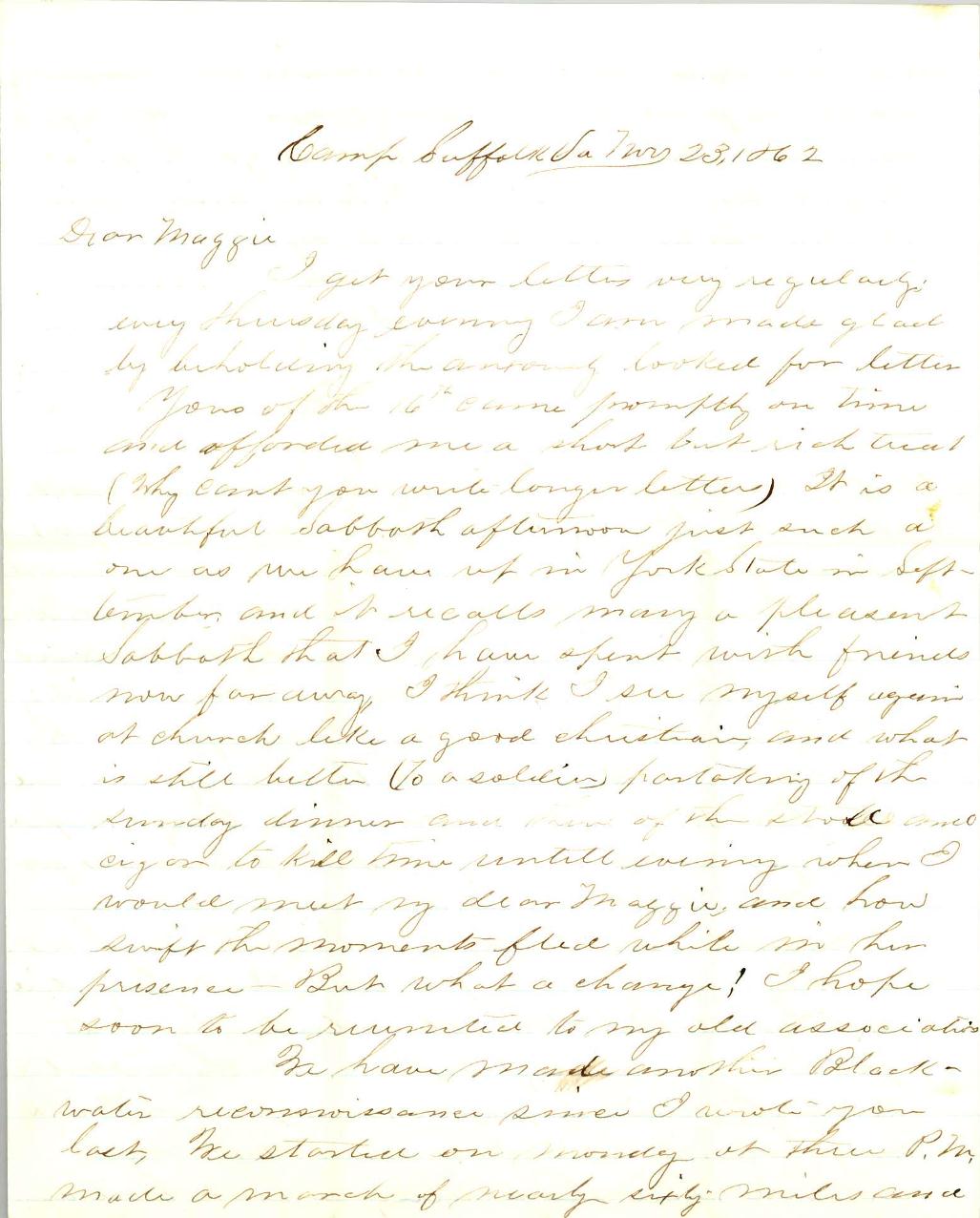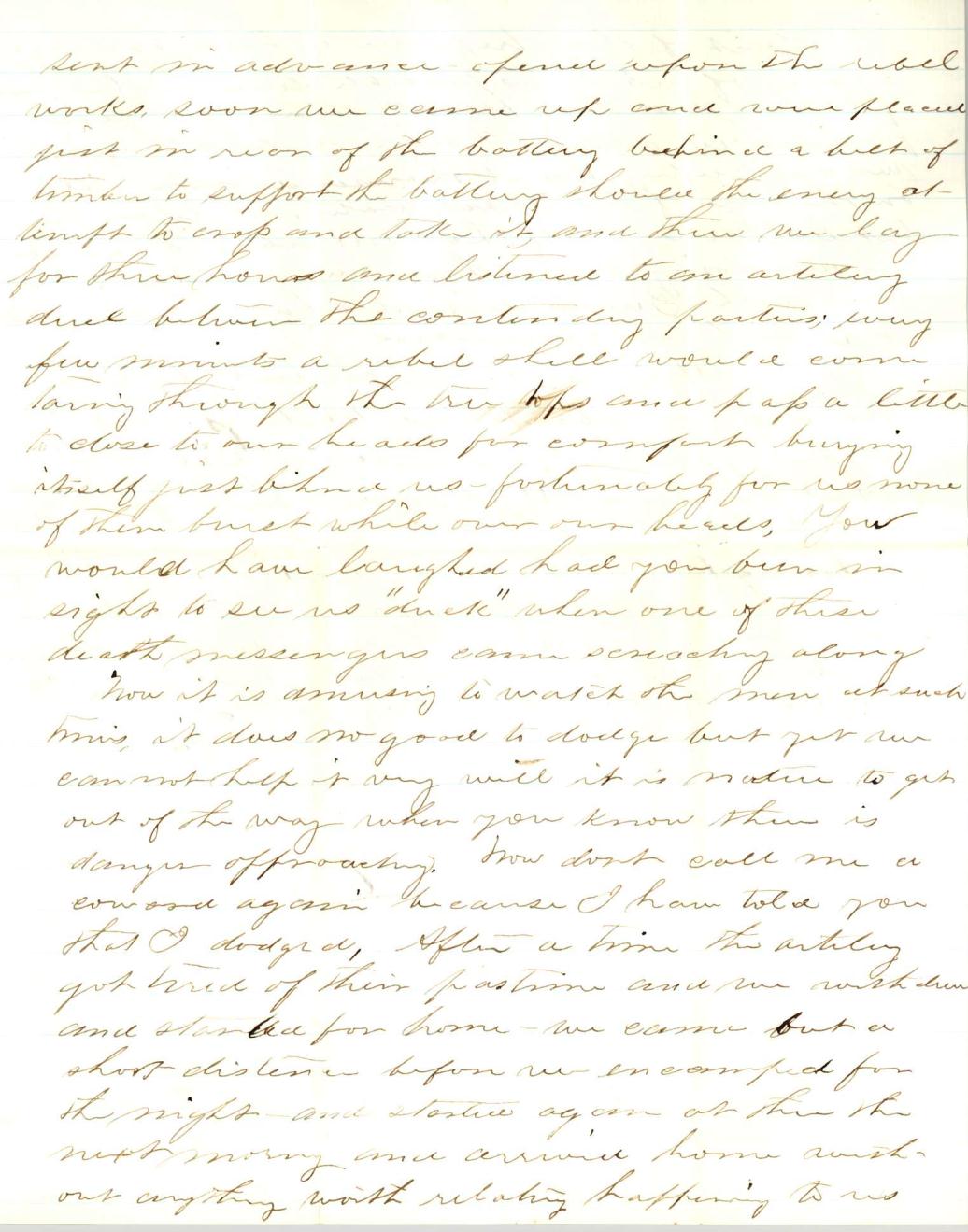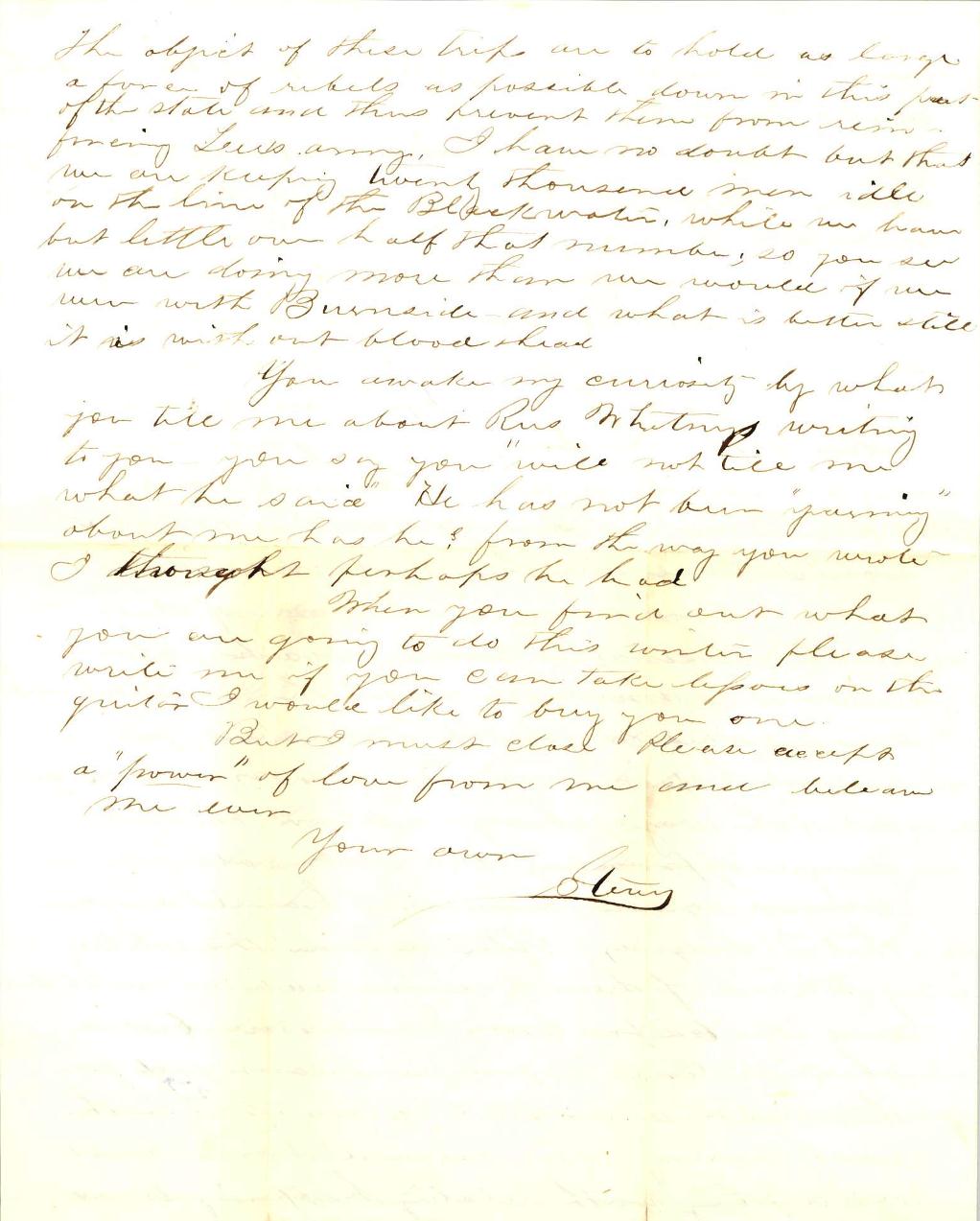Item description: Letter, 23 November 1862, from Union soldier Stephen Tippet Andrews to his beloved, Margaret (Maggie) Little.
Stephen Tippet Andrews enlisted in the 85th New York Infantry Regiment on 26 August 1861. He helped organize Company F, and was mustered in as first sergeant of the company in the second half of 1861.
For an introduction to the correspondence between Andrews and Little, please see our post of 11 February 1862.
Item citation: In the Stephen Tippet Andrews Letters #5324, Southern Historical Collection, The Wilson Library, University of North Carolina at Chapel Hill.
Item transcription:
Camp Suffolk Va Nov 23, 1862
Dear Maggie
I get your letters very regularly every Thursday evening I am made glad by beholding the anxiously looked for letter Yours fo the 16th came promptly on time and afforded me a short but rich treat (Why cant you write longer letters) It is a beautiful Sabbath afternoon just such a one as we have up in York State in September; and it recalls many a pleasant Sabbath that I have spend with friends now far away, I think I see myself again at church like a good christian, and what is still better (To a soldier) partaking of the Sunday dinner and then of the stroll and cigar to kill time untill evening when I would meet my dear Maggie; and how swift the moments fled while in her presence – But what a chance! I hope soon to be reunited to my old associations
We have made another Blackwater reconnaissance since I wrote you last, We started on Monday at three P.M. made a march of nearly sixty miles and arrived all safe at noon on Wednesday at three P.M. made a march of nearly sixty miles and arrived all safe at noon on Wednesday which is called by military men pretty rapid marching. We marched all night the first night and arrived at Joiners Bridge five miles above Franklin at eight oclock in the morning. The rebel pickets were found a mile this side of the Bridge and driven in after a brisk skirmish by our cavalry. Arriving at the river Gen Wessell sent a regiment of cavalry across under cover of a battery, which was planted so as to hold the Ford (the Bridge has been destroyed) and after scouting an hour or so returned a dozen prisoners – and reported the enemy in force bur a short distance from the river, The General not wishing to have another Ball Bluff affair decided not to cross – I believe if we had crossed that we would have been trapped and got cut to pieces or taken prisoners, for the ” rebs” kept hid and would not try to hinder our crossing which looked as so they were ready for us – But they did not catch Gen Wessell asleep; he is to good a General for that. We had then started down the river – before we arrived there the artilery which had been send in advance opened upon the rebel works, soon we came up and were placed just in rear of the battery behind a bilt (?) of timber to support the battery should the enemy attempt to cross and take it, and there we lay for three hours and listened to an artilery duel between the contending parties; every few minutes a rebel shell would come taring through the tree tops and pass a little to close to our heads for comfort burying itself just behind us – fortunably (?) for us none of them burst while over our heads, You would have laugte had you been in sight to see us “duck” when one of these death messengers came screaching along
Now it is amusing to watch men at such times, it does no good to dodge but yet we cannot help it very well it is nature to get out of the way when you know there is danger approaching. Now dont call me a coward again because I have told you that I dodged, After a time the artilery got tired of their pastime and we withdrew and started for home – we came but a short distance before we encamped for the night – and started again at three the next morning and arrived home without anything worth relating happening to us The object of these trips are to hold as large a force of rebels as possible down in this part of the state and thus prevent them from reinforcing Lee’s army. I have no doubt but that we are keeping twenty thousand men idle on the line of the Blackwater, while we have but little over half that number; so you see we are doing more than we would if we run with Burnside – and what is better still it is with out blood shed
You awake my curiosity by what you tell me about Rus Whittings writing to you – you say you ” will not tell me what he said” He has not been ” yarming” (?) about me has he? from the way you wrote I thought perhaps he had
When you find out what you are going to do this winter please write me if you can take lessons on the guitar I would like to buy you one.
But I must close Please accept a “power” of love from me and believe me ever
Your own
Steve





